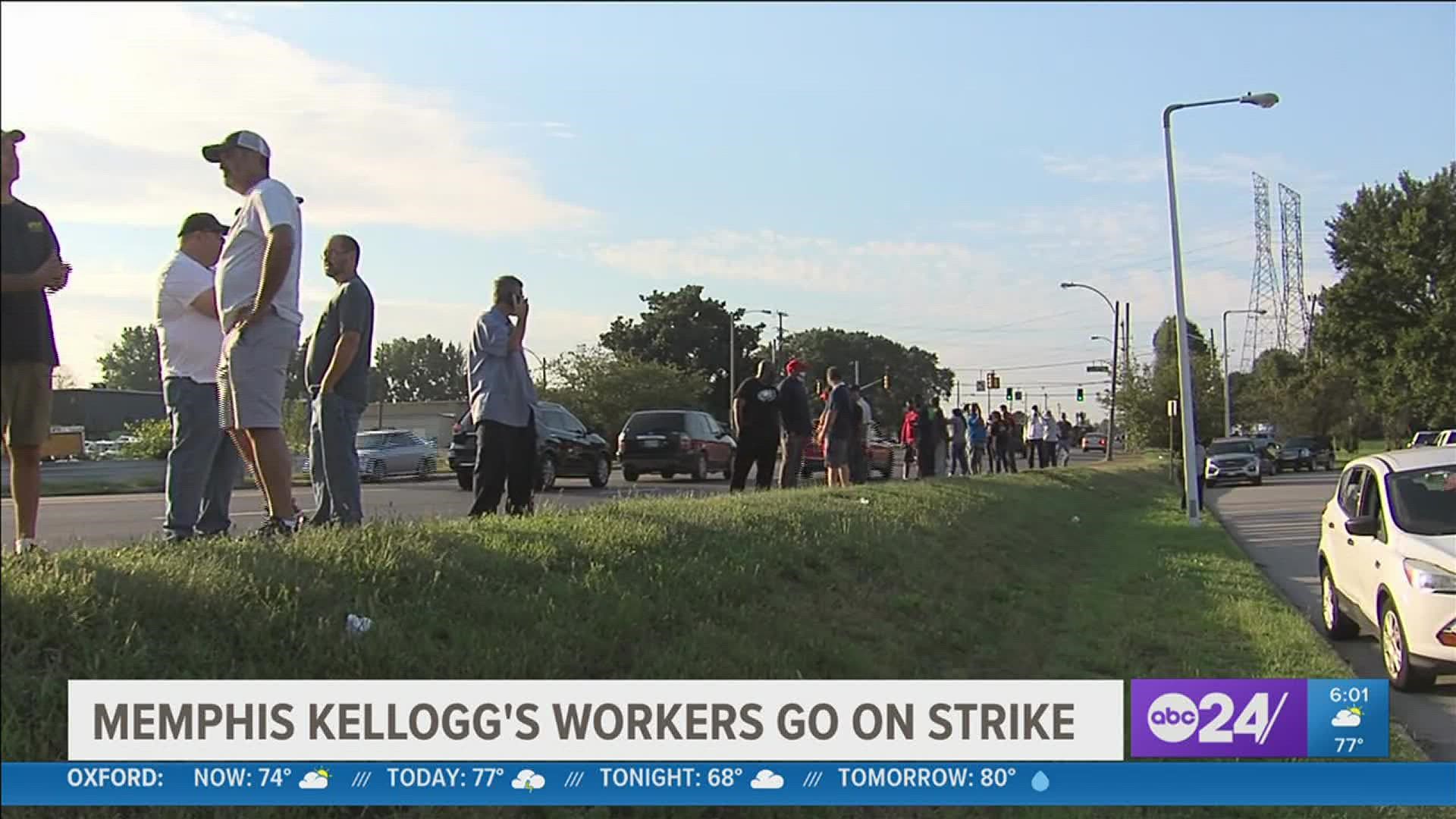MEMPHIS, Tennessee — At sunrise Tuesday morning, hundreds of workers at Memphis' Kellogg's Plant went to the picket line, after beginning a strike Tuesday morning.
Workers in the Bluff City - along with plants in Nebraska, Michigan, and Pennsylvania - are demanding higher pay for new hires and lower benefit costs.
Local economists said the two major questions are how long the strike will last and how it could impact those who buy Kellogg's products.
"Pay your people what you can afford to pay them, not what you want to pay them," BCTGM Local 252G Vice-President Kevin Bradshaw said.
Bradshaw's union represents 275 members at the Kellogg's plant who are picketing after contract talks broke down in the past week.
Bradshaw said Kellogg's management is proposing a two-tier wage program that would slash wages for new employees and eliminate a path for full benefits and a pension for that group.
"Pay everyone equal pay and benefits, and insurance and benefits, and this is where we are at right now," Bradshaw added.
The strike could be the first major labor unrest at the Memphis Kellogg's plant since a lockout lasted 275 days in 2013 and into 2014. It ended when a federal judge ordered Kellogg's to allow employees back to work.
"We've experienced this before and there's a lot of hardship on families and loved ones," Bradshaw said.
A Kellogg's spokesperson said: “Kellogg's is committed to negotiating a fair and competitive contract that reflects the contributions of our employees. We remain available to talk with the union at any time and prepared for any outcome at contract expiration.”
"Labor unrest rises during very tight labor markets, this is one example," Economist Dr. John Gnuschke said.
Dr. Gnuschke fears that if the Kellogg's strike lasts long enough, consumers likely will pay the price.
"One thing we know that will happen is costs will go up, OK. This negotiation will end up with higher costs," Dr. Gnuschke said.
The economist said the Kellogg's strike could have a ripple effect for other local unions - if they feel similar concerns - to consider also moving to the picket line.

